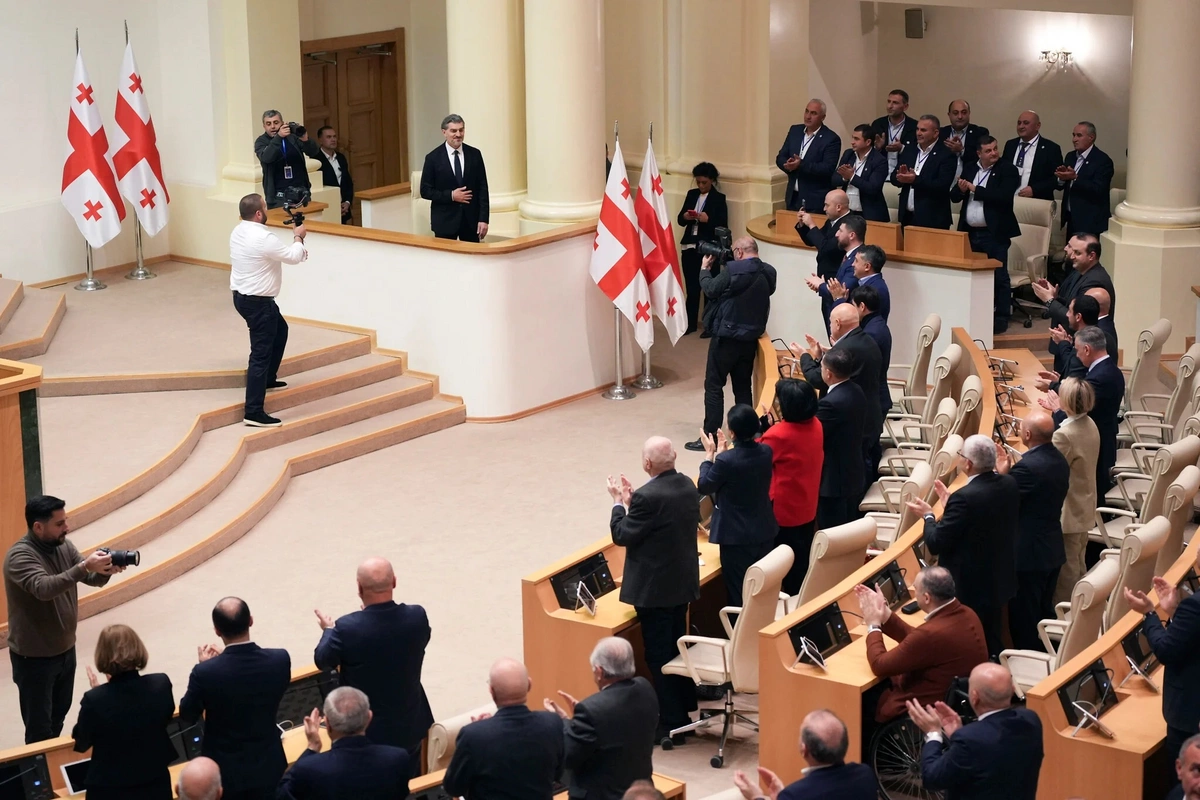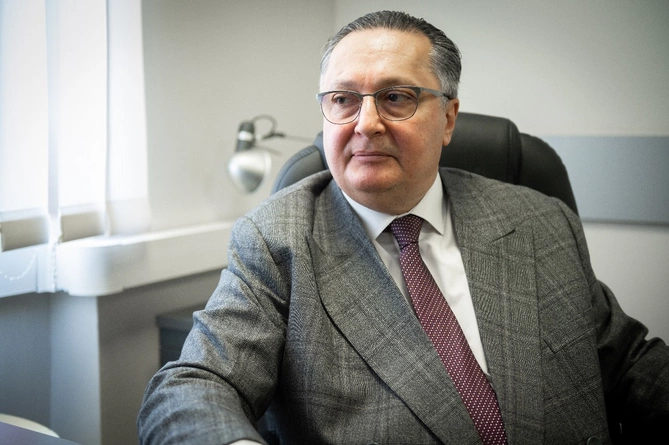
Photo: AP
The Caspian Post presents an interview with Arno Khidirbegishvili, General Director and Editor-in-Chief of the Georgian Information and Analytical Agency "GRUZINFORM" and Director of the Center for Security, Strategic Analysis, and Information Policy.

- How do you assess the new format of Georgia’s presidential elections through the electoral college? What advantages and disadvantages do you see in this system given the current political situation in the country?
- On December 14, 2024, Georgia held its presidential elections for the first time under a new scheme. The head of state was elected for a five-year term by an electoral college of 300 members, comprising 150 parliamentary deputies, 20 representatives of the Supreme Council of Abkhazia (in exile), 21 deputies of the Supreme Council of Adjara, and 109 representatives of local self-government.
The sole candidate was Mikheil Kavelashvili, a representative of the ruling Georgian Dream party. He received the support of 224 electors. A former football player and a member of parliament since 2016, Kavelashvili had previously left Georgian Dream and co-founded the "People’s Power" movement, known for its anti-Western rhetoric. His political platform focuses on defending national interests, traditional values, and Georgia’s sovereignty.
The opposition and several EU countries declared the elections illegitimate, arguing that the parliamentary elections, which formed the electoral college, had been rigged with Russia’s support. However, the voting was conducted using American electronic technologies, and the process was monitored by around 4,000 international observers. Despite this, European media labeled Kavelashvili a "pro-Russian president," emphasizing his deviation from Western expectations.
Kavelashvili’s inauguration marks a new phase in Georgia’s political life. However, international pressure and domestic opposition pose significant challenges for the young leader. Time will tell whether he can unite the country and fulfill the expectations of his supporters.
- How do you evaluate the influence of external forces on Georgia's political and cultural situation over recent decades? What steps, in your view, are necessary to protect the country's national interests, traditional values, and sovereignty?
- Against the backdrop of the resurgence of neo-Nazi movements in Ukraine, leaders of Germany and France seem to be pursuing an old Reich strategy-weakening Russia by detaching the Caucasus and establishing their influence there. This plan is reminiscent of the concept of the Reichskommissariat "Caucasus," with its administrative center in Tbilisi, where Hitler envisioned incorporating Armenia, Georgia, Azerbaijan, and the republics of the North Caucasus.
Today, Georgia is cast as a "sacrificial lamb," expected to open a "second front" against Russia, repeating Ukraine’s fate. However, the ruling Georgian Dream party and its leader Bidzina Ivanishvili have prevented this scenario. President Mikheil Kavelashvili rejects radical pro-Western initiatives. At the same time, the West continues to erode Georgia's traditional values-family, Christianity, and cultural ties with Russia, which were actively promoted during the era of Mikheil Saakashvili.
-What played a key role in maintaining support for the ruling Georgian Dream party among the population, despite mixed attitudes toward the government?
- The Georgian opposition made a strategic mistake by linking Georgian Dream with Russia, traditional values, and the Georgian Orthodox Church. This resulted in most of the population supporting the ruling party, including critics of the government and advocates for distancing from Russia. The reason is simple: under Georgian Dream, the country has experienced no revolutions, wars, or violence.
- What are the prospects for strengthening political and economic cooperation between Georgia and Azerbaijan amidst ongoing external pressure and internal challenges?
- Georgia’s neighbors are closely monitoring the country’s situation, as its leadership significantly impacts regional relations. Azerbaijani President Ilham Aliyev was among the first to congratulate Georgia’s new leader, demonstrating unwavering support.
Azerbaijan and Russia remain Georgia’s key trading partners. Despite Western pressure, Georgia's economy and society depend on interaction with these countries.
-How strong is the support for radical parties and their ideas among the Georgian population?
- The most important point is that a "Maidan" has not occurred in Georgia. Radicals will have to accept that the majority of Georgians, particularly ordinary people in towns and villages, maintain warm feelings toward Russians. However, until the registration of three radical parties and their media outlets is annulled, provocations will continue.
Share on social media